Ouvrages collectifs

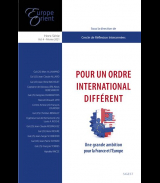 |
Qui a plus « besoin de l’OTAN » ? La France ou…les USA ?
Pour un ordre international différent. Une grande ambition pour la France et l'Europe (dir. Cercle de Réflexion Interarmées)
01 févr, 2021
Coutumier des déclarations fracassantes mais pas forcément étayées par les faits, le président Donald Trump en a placé deux d’un coup, au sommet de l’Alliance en décembre 2019, lors d’une conférence de presse : « Personne n’a besoin de l’OTAN plus que la France (…) Les Etats- Unis en tirent vraiment le moins de bénéfices ». Deux inepties qui méritent que l’on s’y arrête.
|
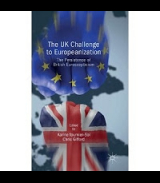 |
La dimension transatlantique de l'euroscepticisme britannique
The UK Challenge to Europeanization (ed. K. Tournier-Sol - C. Gifford)
16 sept, 2015
La dynamique des relations entre le Royaume-Uni et l’Union européenne ne peut être appréhendée dans sa totalité et dans sa spécificité sans prendre en compte le rôle déterminant qu’y jouent les Etats-Unis, à travers notamment les relations que Londres voudrait croire « spéciales ». Que ce soit de manière directe, indirecte, voire parfois paradoxale, le tropisme américain/atlantiste de l’establishment politico-médiatique britannique est en arrière-fond d’une bonne partie de leurs positions considérées comme sceptiques, ou même carrément hostiles envers de la construction européenne.
|
 |
Une avant-garde pour préserver et renforcer la souveraineté européenne
Pour une Europe européenne (ed. H. de Grossouvre)
14 sept, 2007
« L’avant-garde européenne n’a de sens et de légitimité que si elle est inspirée par une vision stratégique, visant au renforcement de tous les aspects de la souveraineté européenne. Seul un tel projet pourra contribuer à la préservation d’une ‘certaine idée de l’Europe’ : un acteur géopolitique à part entière capable de garantir notre sécurité, de promouvoir nos valeurs et nos intérêts et de défendre notre modèle économique, social, environnemental et culturel. Pour ce faire, il faut clairement se démarquer des scénarios alternatifs et veiller à ne pas céder aux facilités et aux fausses sirènes.
|
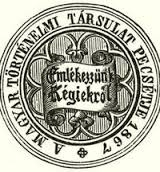 |
L'UE aujourd’hui - diagnostic et scénarios
Európai Unióról és oktatásáról (ed. O. Szabolcs)
13 mai, 2006
Le processus d’intégration européenne est, sans l’ombre d’un doute, l’innovation politique la plus significative du dernier demi-siècle. Parti d’un sentiment de nécessité, il fut guidé par l’espoir que la construction d’une communauté entre pays européens montrera un jour le chemin vers l’organisation du monde du demain. Toutefois, notre sujet ici n’est pas de disserter sur le caractère à la fois brillant, nécessaire et prometteur du projet. Car la crédibilité et la légitimité intérieures et extérieures du processus européen sont aujourd’hui fortement entamées par le gouffre énorme entre la rhétorique médiatico-officielle et la réalité.
|
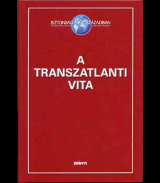 |
Vers la démystification de la relation transatlantique
A transzatlanti vita (ed. H. Vincze)
04 mai, 2006
Les relations euro-américaines sont périodiquement ennuagées par les « malentendus » dits ponctuels, les escarmouches verbales prétendument imprévues, les tempêtes diplomatiques qui semblent se lever d’un jour à l’autre, et d’autres manifestations de la suspicion mutuelle. Leur perception est dramatisée de façon exponentielle par le fait qu’elles surgissent de sous le couvercle d’une prétendue communauté de valeurs et d’intérêts, dans une relation supposément impeccable. Ce contraste, qui peut paraître inexplicable, augmente le risque de la montée en puissance d’une réaction viscérale (issue justement de l’incompréhension) des deux côtés de l’Atlantique : l’anti-américanisme ici, sentiment d’hostilité vis-à-vis de l’Europe là-bas.
|
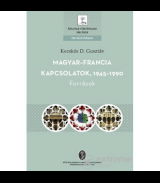 |
A la charnière de deux époques
Magyar-francia kapcsolatok 1945-1990 (G. Kecskés)
20 mars, 2006
Commentaire de document au sujet de la visite à Budapest du président de la Commission européenne, Jacques Delors et du ministre français des Affaires étrangères, Roland Dumas, les 16-17 novembre 1989
|
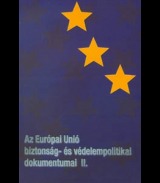 |
Les perspectives d'une culture stratégique européenne commune
Az EU biztonság- és védelempolitikai dokumentumai 3 (ed. J. Takács - P. Tálas - H. Vincze)
01 déc, 2005
La présente étude commence par examiner le concept de « culture stratégique », avant de tenter de dresser l’inventaire des nombreuses lignes de fracture divisant les Etats membres de l’UE dans ce domaine. Pour conclure, elle se focalise sur les forces qui permettent ou empêchent de surmonter ces divergences. En soulignant tout au long que la véritable question ne concerne pas la faisabilité d’une éventuelle synthèse, mais plutôt sa substance. Autrement dit, il s’agit de savoir si une culture commune européenne en matière de sécurité pourra-t-elle jamais avoir un contenu réellement stratégique.
|
 |
Le modèle européen de sécurité face aux nouveaux défis
Security under Global Pressure (ed. I. Tarróssy)
01 mars, 2005
L'article définit d'abord les critères principaux de ce que l'on peut appeler "modèle européen de sécurité", pour examiner ensuite le rôle et la pertinence de ce dernier dans la lutte contre le terrorisme.
|
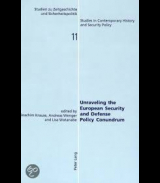 |
Un rôle militaire plus affirmé pour l’UE dans les Balkans ?
Unraveling the European Security and Defense Policy Conundrum (ed. J. Krause - A. Wenger - L. Watanabe)
01 janv, 2003
Après avoir donné un bref aperçu de la gamme d’instruments non militaires mis en œuvre par l’UE dans les Balkans, l’accent est mis sur le fait que l’absence d’une composante militaire crédible risque d’affaiblir – sinon saper – l’ensemble des autres aspects.
|
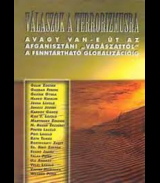 |
La réponse de l'Union européenne aux événements du 11 septembre
Válaszok a terrorizmusra (ed. P. Tálas)
11 sept, 2002
Les spécificités de la situation et de la réaction de l’UE Réponses par domaine d’activité Justice et affaires intérieures Diplomatie, politique étrangère, de sécurité et de défense Assistance humanitaire La sécurité du trafic aérien Mesures dans le domaine économique et financier Protection civile Tendances à long terme Défense collective Flexibilité institutionnelle Fusion inter-piliers Elargissement et approfondissement Dimension méditerranéenne Globalisation durable
|
|
 |
Les plus lus


|



